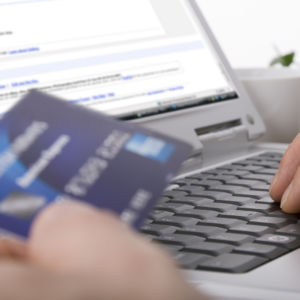The pandemic has driven much of our lives online. Now, with a simple click of the mouse, we can do our work, order our groceries, and visit the doctor. Criminals have also gone digital, exploiting technology’s convenience and anonymity and our fears to peddle fake cures and false hopes to American consumers of all ages. Search for “COVID-19” online today, and you’re likely to be flooded with offers for bogus vaccination cards, fraudulent testing kits, and the latest sham cures for the coronavirus. The internet is a virtual storefront for drug dealers, fraudsters, and scammers. And it’s open for business 24/7.
According to a recent national survey conducted by the ASOP Global Foundation, 42 percent of Americans now purchase medications online, an increase from 2020. And this trend isn’t going away: 64 percent say they plan to continue buying prescription drugs online after the pandemic ends.
Yet consumers hold widespread misperceptions about the structural safety nets in place to protect them from bad actors online. The same national survey shows that nearly half of Americans falsely say they believe all websites offering health care services and prescription medications are approved by the FDA or state regulators. Almost three-quarters also believe that verified, safe websites selling prescription medications should appear first in search results or be clearly identified as legitimate, but this couldn’t be further from the truth. This is alarming to health professionals and consumer advocates alike, as 1 in 5 Americans exclusively rely on online searches and social media platforms to find the online pharmacies they visit.
A transparent internet is a safe internet. For too long, criminals have benefitted from anonymity and lax enforcement online. Ninety-five percent of the nearly 35,000 online pharmacies worldwide operate illegally, and the drugs they sell can be deadly. Internet registries and registrars are responsible for creating domain name extensions such as .com, .edu, and .org and selling them to the public. Their failure to self-police fosters an atmosphere of lawlessness that allows criminals to thrive. Domain name companies often won’t initiate action unless compelled by courts when websites violate their terms of service, repeatedly break those rules, or refuse to take corrective action in response to abuse complaints.
It’s up to federal policymakers to enact and enforce common-sense legislation to protect American consumers online. Recently, Sen. Amy Klobuchar (D-Minn.), Sen. Marco Rubio (R-Fla.), Rep. Bobby Rush (D-Ill.), and Rep. David McKinley (R-W.V.) introduced the bipartisan Domain Reform for Unlawful Drug Sellers (DRUGS) Act to make the internet safer by finally holding the domain name industry’s feet to the fire. Senate Bill S.3399 and House Bill 6352 require registrars and registries to take down websites that openly and illegally offer prescription medicines, controlled substances, and unapproved medical products.
Congress must address many pressing issues in 2022, but passing the DRUGS Act is a no-brainer. The DRUGS Act would have an immediate and global impact on consumer safety. By holding registrars and registries accountable for stopping illegal websites, we can ensure that young people, seniors, and everyone in between can purchase the medications they need safely at legitimate online pharmacies. It’s time to inoculate consumers against registries and registrars that seek to profit at the expense of American consumers’ health.

